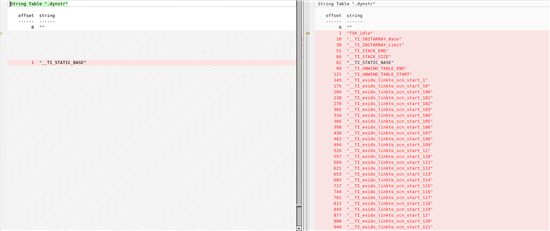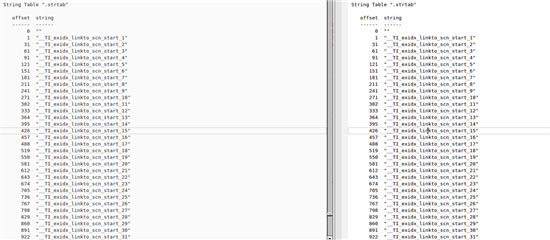Hi all,
We've tried to take into use the newest version of C6000 compiler, because one issue that we have faced is fixed in this release (SDSCM00047480).
However, we faced a new problem. When linking our DSP image with --dynamic option, the image does not boot anymore on TCI6638 EVM. We use MCSDK 3.0.3.15.
Some notes:
- With older compiler 7.4.7, the same code works fine.
- If linked with 7.6.0 without --dynamic option, the image boots. But we need the dynamic linking because we load runtime libraries which are linked against the base image.
Is there some other linking options/defines that I should use with the new version in order to have the same functionality as with 7.4.7?
thanks,
-vesa





